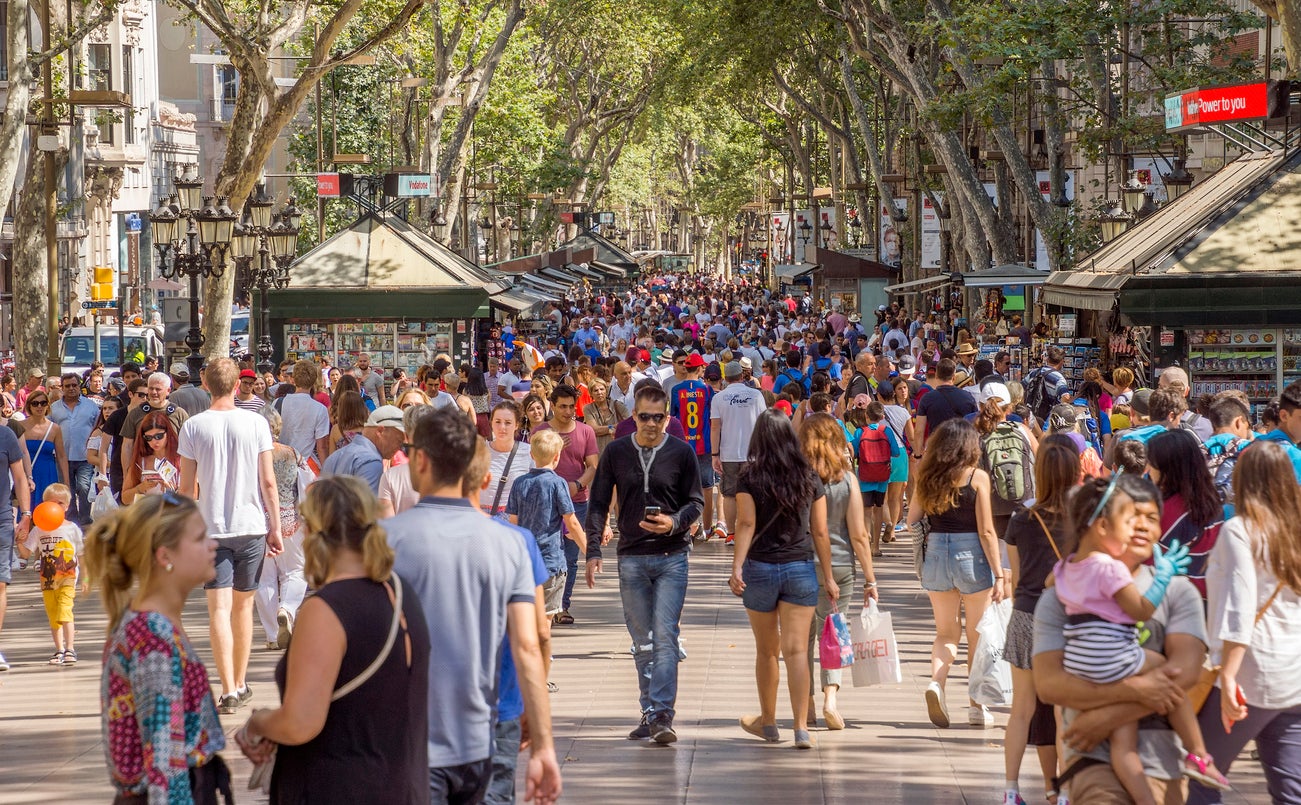Barcelona set to increase tourist tax over next two years
By 2024, five-star hotel guests will pay £42 per person, per week to sleep in the city

Spain’s top tourist city, Barcelona, is increasing its municipal tourist tax - with the amount five-star hotel guests pay set to rise from €5.25 to €6.75 per night by 2024.
The city adds its own surcharge on top of a general tourist tax charged per night imposed in the region - a move which was approved by Spanish government in summer 2020.
The tourist tax varies depending on which type of accommodation you stay in, and is only applied to regulated, official tourist accommodation.
Someone in a regulated tourist rental apartment currently pays €2.25 per night to the region and €1.75 to the city, while someone in a five-star hotel pays €3.50 per night to the region and the same €1.75 to the city.
However, Barcelona City Council has announced a “scaled increase” to its municipal surcharge, meaning the €1.75 fee will rise to €2.75 on 1 April 2023, and to €3.25 from 1 April 2024.
The Spanish government recently approved plans to increase the amount to up to €4 per night over the next two years.
The surcharge increase means that, by April 2024, five-star hotel guests will pay €47.25 (£42) per seven-night stay on top of their hotel room rate.
The sum is paid to Barcelona’s Generalitat and the City Council. The latter says it hopes to bring in €53m during 2023, and up to €100m over the course of 2024.
The mayor’s office said the move was part of a drive to attract “quality” tourism over big numbers. Barcelona typically sees around 32 million annual visitors (excluding the pandemic years), many of them day-trippers and cruise ship passengers.
It first implemented a tourist tax in 2012, initially setting a price point of between 50 cents and €2.50 euros depending on the type of accommodation.
As of 2022, guests in four-star hotels pay €1.70 a night to the region and €1.75 as a municipal surcharge (€3.45 total, set to rise to €4.95 by 2024); cruise passengers staying in the city for more than 12 hours pay €3 to the region and €1.75 to the city (€4.75, set to rise to €6.25 in 2024).
Barcelona has been blighted by overtourism in recent years, with Responsible Travel reporting that its port was found to be the most polluted in Europe in 2019, and tourist demand for accommodation driving up rents and forcing locals to move out of town.
Of the tax rise, deputy mayor Jaume Collboni said: “The economic data for tourism in 2019 is already increasing, not in the number of tourists, but in the amount of income from tourism in Barcelona.
“It was the objective sought: to contain the number of tourists and increase tourist income because our model is no longer mass tourism but quality tourism, which adds value to the city.”
City mayor Ada Colau added: “In 2024, our forecast is that with the municipal section of the tax - another part is received by the Generalitat - the city can enter €100m per year in the municipal budget as a result of tourist activity.”
The tax rise only applies to people staying in regulated tourist accommodation in Barcelona, not in other areas of the wider region of Catalonia, such as Salou or Lloret de Mar.
The money will be used on city infrastructure, said the mayor’s office, such as road improvements, more buses, new escalators and elevators.
The Spanish region of Valencia recently announced a new tourist tax that will come into effect in December 2023.
It means that local hotels can choose to add an amount of between 50 cents and €2 per night to each guest’s bill; though the charge is not compulsory.
Join our commenting forum
Join thought-provoking conversations, follow other Independent readers and see their replies
Comments
Bookmark popover
Removed from bookmarks